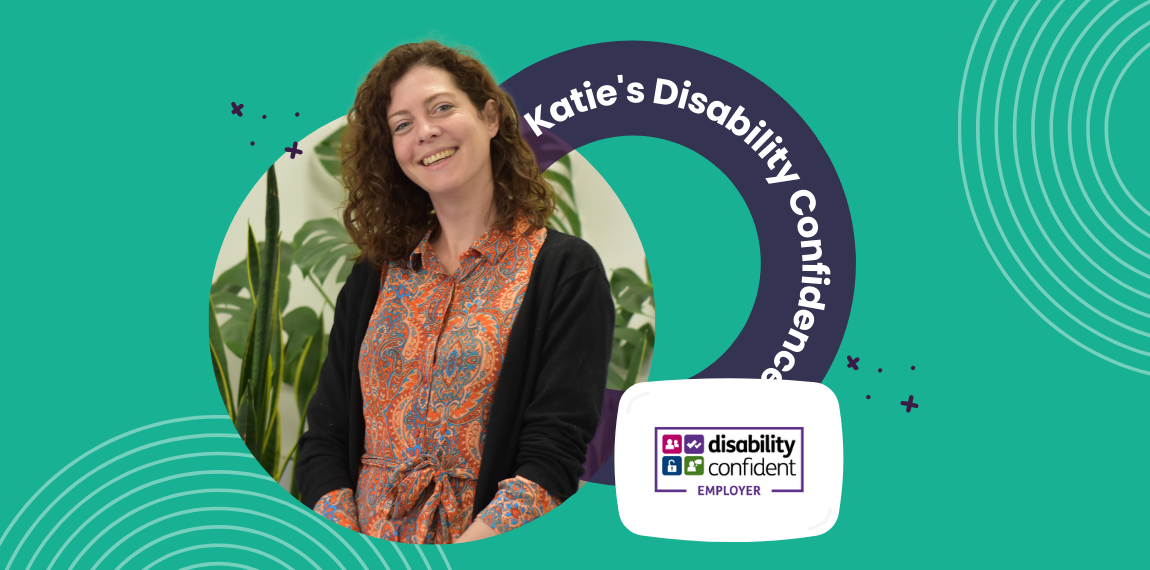Who We Are
Our Commitment

Over 4 million people in the UK are currently living with Diabetes, but despite there being so many diabetic people in the workplace – including me – it’s still somewhat misunderstood.
I’ve been with Consensus for almost five years now, and it was one of the first times I felt confident enough to speak up right from my interview and tell the person who I hoped was going to be my line manager that I had diabetes, and ask what they’d be able to do to support me. There was no hesitation, they reassured me they’d do everything they could, make adjustments and just be there to listen.
I’m sure a lot of people know now that there’s two types of diabetes (but there are in fact more than two!) and it affects how your body produces and uses insulin which, impacts on blood sugar control – but it’s a little more complicated than that. Some people develop it, some people are born with it; it isn’t just caused by diet and lifestyle. Type 1 Diabetes, the type I have, is an auto-immune disease which I developed when I was 8.
There’re countless factors that can affect a diabetic’s blood sugar levels, from the obvious ones like diet and lifestyle to the outside temperature, hormones, illness and stress. The symptoms of undiagnosed diabetes can include extreme fatigue, weight loss, extreme thirst, and the need to go to the toilet a lot. Complications from diabetes vary, but result in things like nerve pain, vision problems and a higher risk of other serious health issues. But don’t fear – diabetes can be managed, and we can live perfectly happy, active and positive lives, especially with the amazing new technology and treatment improvements happening in diabetes care.
One thing people may not know, is that people with diabetes are more likely to struggle with eating disorders due to having to focus on counting carbohydrates, on numbers, and managing their diet. This can be very harmful due to how Type 1 Disordered Eating (or T1DE) can affect your blood sugar levels and therefore, your current and future health. There’s also a higher risk of depression and anxiety so it can affect multiple areas of your life, much like other long term health conditions.
Everyone is different and will experience their symptoms in different ways – for example I can get fatigued very easily, and it affects my immune system which means even a common cold can leave me feeling ill for weeks.
Stress can be detrimental for everyone, but it can cause problems for people with diabetes that can have a knock-on effect on our health and our work – I heard an analogy that I always tell people about when it comes to stress and pressure; it’s like you’re a balloon – you need a decent amount of pressure to keep afloat, but if you change that pressure to stress and overinflate the balloon, eventually, you’ll pop. Same with little or no pressure, you’ll just deflate – so like the balloon, it’s important to keep the right amount of pressure to keep you going but not too much stress you burnout.
Diabetes is a long-term chronic health condition, some people don’t consider themselves disabled by it and because of that a lot of people don’t reach out and ask for support at work, but you should always try. Not only are you protected by law, but you might find people are more understanding than you think.
If you have a colleague, an employee or a friend with diabetes – the first thing you need to do is listen; find out what kind of diabetes they have, what factors affect them and most importantly what signs they have of potentially going into hypo- or hyperglycaemia. Hypoglycaemia is when our blood sugar levels drop dangerously low, and we may show signs externally like becoming pale, seeming confused or irritated, or slurring our words; you could really help someone by recognising these signs and helping them before they become more unwell. Luckily the initial treatment for a ‘hypo’ – as long as someone is conscious – is to have something sweet, like a sugary drink/fruit juice, or a small bag of Haribo (my personal preference!)
I’ve had fabulous support from my team – being flexible around medical appointments, being understanding when I’m sick, and offering me extra help when things have been difficult and stress has been building up. I’ve never had any judgement from anyone when I’ve had to inject myself or test my blood sugar. I’ve been very transparent about what I need and they respect that taking care of your health is never unprofessional. It doesn’t take a lot of work to make accommodations for your team, but when you do it opens the door to new people and new skills so it’s always worth the effort.